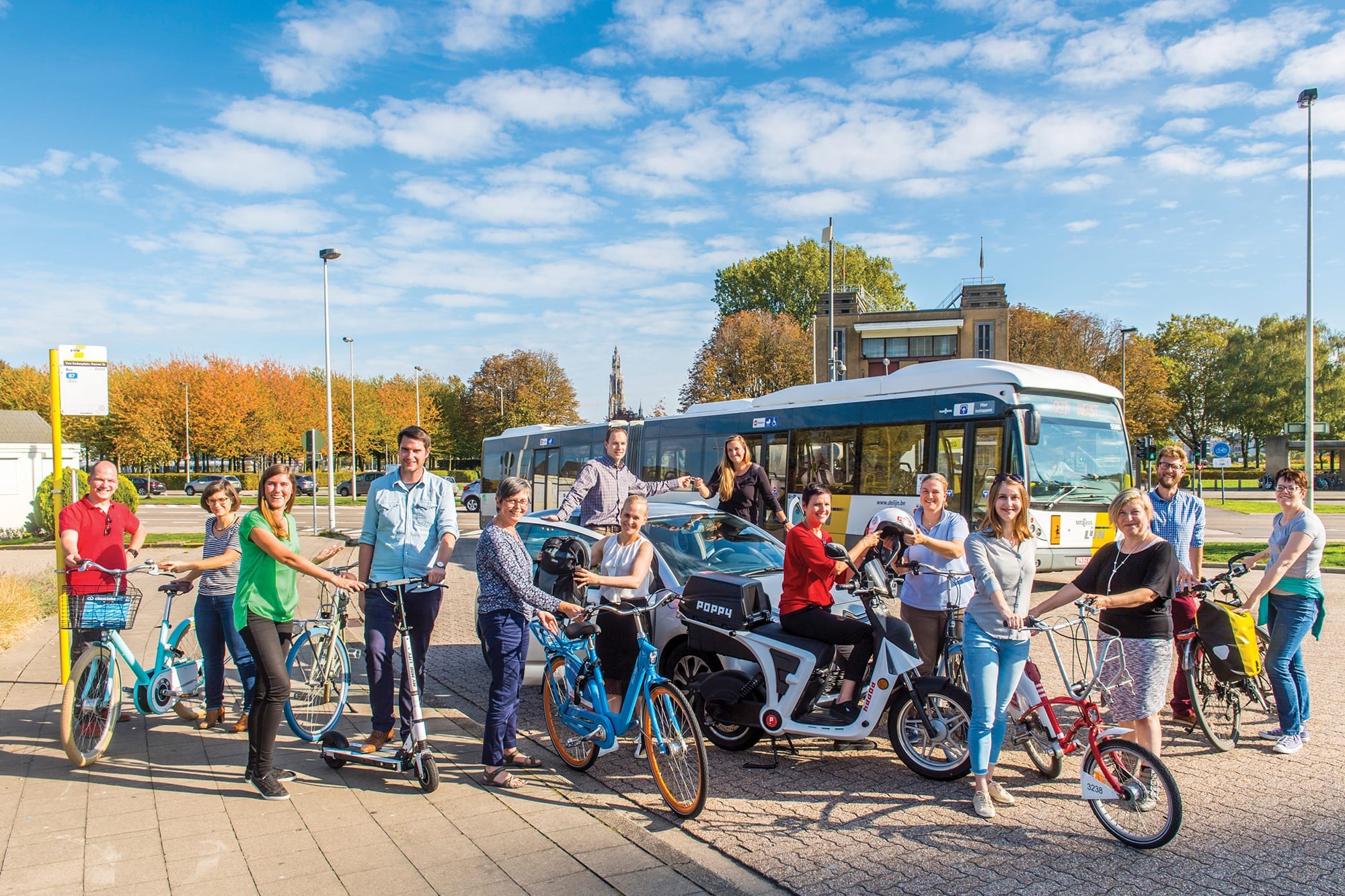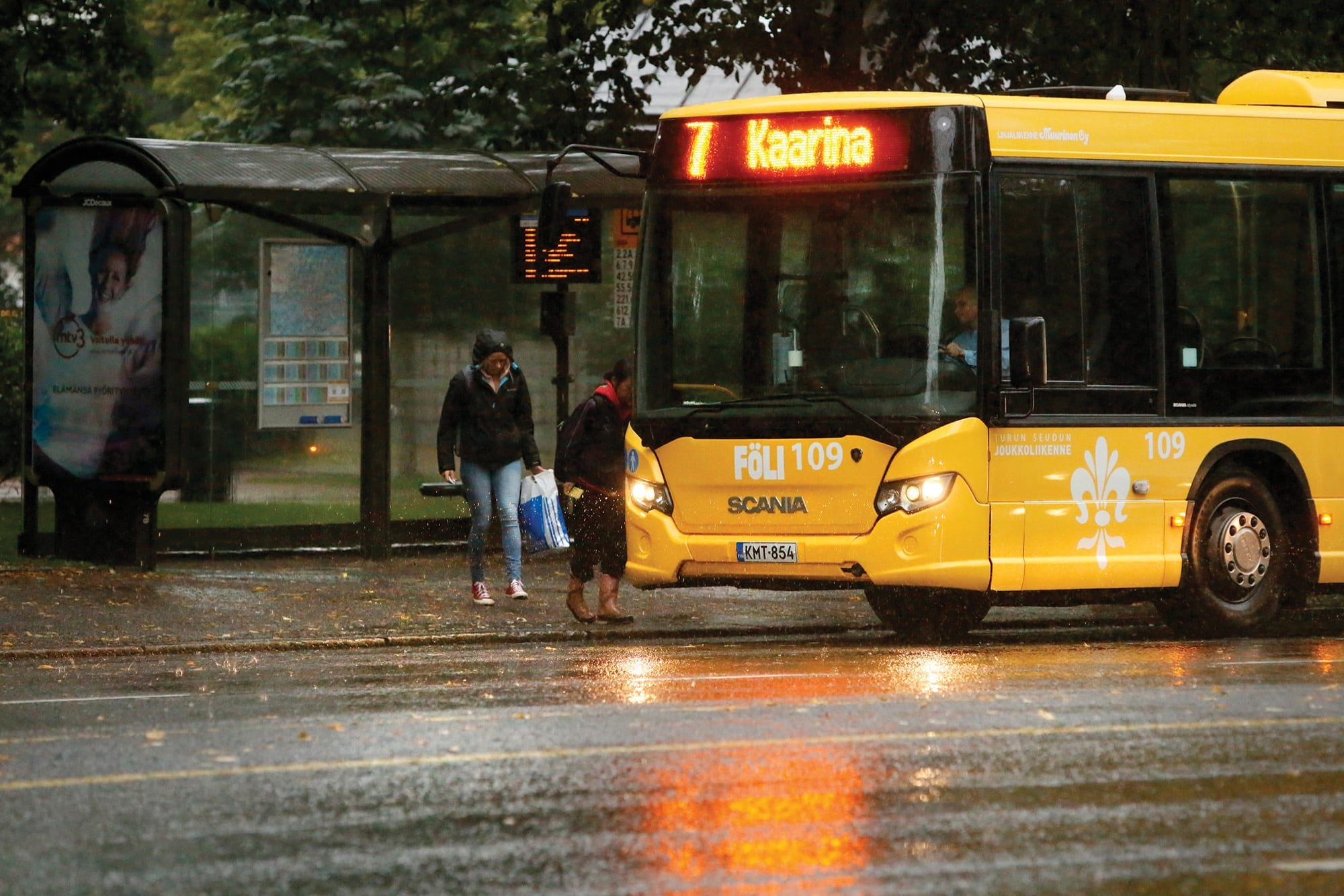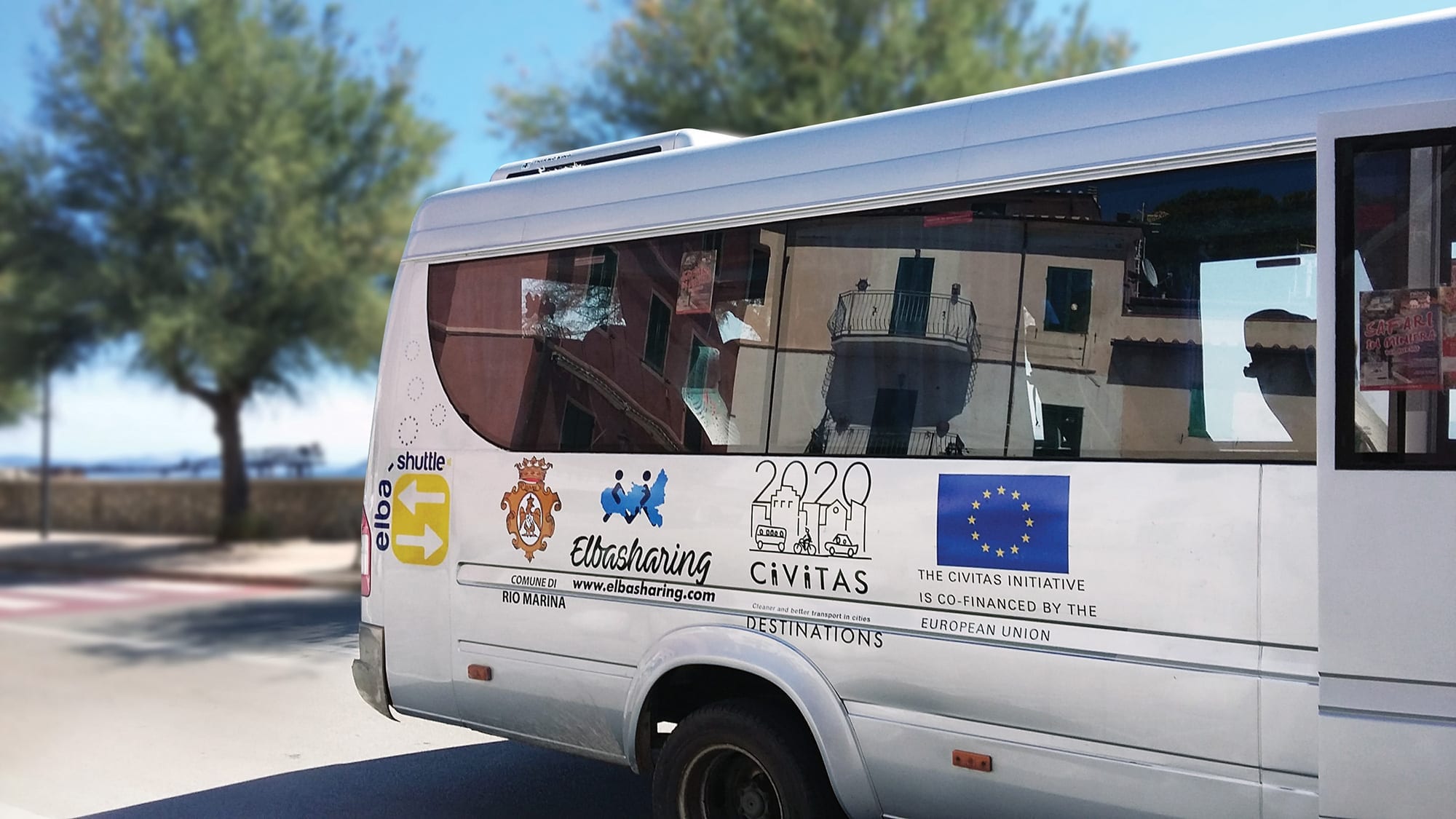Mobility as a Service: Moving Towards Multimodality
Multimodality sits at the heart of the vision set out by European policy-makers for safe, connected, clean and inclusive mobility. But, how can people be convinced to leave their cars at home and switch between different modes as needs dictate? The answer lies in convenience, viable alternatives to car travel, and creating mobility systems where the user is in control. That is where Mobility as a Service (MaaS) comes in.
Multimodality is set to play a crucial role in the future of many European cities. By encouraging users to combine different travel modes and reducing reliance on cars, it can relieve congestion, reduce noise and air pollution, and generally improve quality of life.
However, when using the various forms of transport that they need in their daily lives, people can struggle with the multiple payment and ticketing processes and apps involved. Indeed, taking and switching between various transport modes and finding relevant information can be overwhelming when confronted with multiple options and sources.
Mobility as a Service (MaaS) offers an integrated solution to these complex user needs. MaaS applications provide access to various travel options via a single platform, such as trams, bikes, trains, buses, shared cars, and scooters. It also combines these to present users with a single, seamless journey that incorporates real-time information, reliable planning and considers different payment possibilities.
Still in its infancy, MaaS is taking on different forms around Europe. This is illustrated by the cities of Antwerp (Belgium) and Turku (Finland) as well as the Island of Elba (Italy). Aided by their participation in three Living Lab projects under the CIVITAS Initiative, they are experimenting to find suitable models.
Power to the People: Mobility is a matter of convenience – people want to feel free to move around as they please. By giving users full control, MaaS has the potential to become a driving force in attempts to encourage more sustainable travel.
Antwerp, Belgium: Creating a MaaS marketplace
WRITER: KATIA KISHCHENKO
In Antwerp, MaaS has the potential to help alleviate major pressure on the city’s (road) infrastructure. This is causing a challenging mobility situation that is impacting negatively on the city’s liveability and appeal to tourists and businesses.
With the support of the CIVITAS PORTIS project, Antwerp is creating the building blocks for the successful establishment of a MaaS marketplace in the city. This falls under the “Smart Ways to Antwerp” (SWtA) project – the development of which is a major part of Antwerp’s CIVITAS PORTIS work.
SWtA is developing various measures and tools to instigate a shift towards sustainable modes, change user mobility patterns, and improve travel times for passenger transport and urban freight. Through this, it enables and inspires people to choose alternative mobility solutions where possible and facilitates multimodality.
Soon after SWtA began, it became clear that people are not always aware of the range of mobility solutions available or cannot find the information to make use of them. The need for a multimodal travel planner was obvious.
After several market consultations, it turned out that no truly multimodal travel planner was available that supported Antwerp’s goals. A new travel planner was developed together with Be-Mobile, a market leader in smart mobility. This brings together the different transport modes offered within Antwerp based on various user scenarios.
Possible journeys combining cars, public transport, park and rides, shared bikes and walking are identified and presented to the end-user through the website and dedicated app. Roadworks and traffic diversions are also shown.
The next step in the app’s development will be to allow users to set preferences. For example, people will be able to filter journey options according to mode. Through this, the planner will offer more personalized route planning.
While sound travel advice is crucial to changing users’ mobility habits, the proper and appropriate mobility solutions must also be in place. To ensure this, SWtA has set up its Marketplace for Mobility.
Mobility as a Service (MaaS) offers an integrated solution to complex user needs.
The Marketplace brings together a wide selection of providers who each support the city to reach its mobility goals. Through project calls and active communication and cooperation with employers, employees and entrepreneurs,
the Marketplace is encouraging the development of innovative solutions, such as MaaS.
In combination with existing mobility players and MaaS experts, the City of Antwerp is building up its knowledge related to standardization, reporting, technical requirements, and the user experience. Together, this information is creating a picture of what the end-user really requires and how to best address their needs.
It has become clear that for MaaS services in Antwerp to be efficient and successful, further collaboration between the city and different players is necessary. In January 2019, the city of Antwerp launched a MaaS-specific project call, while it will continue to nurture the MaaS ecosystem within the city.

Turku, Finland: Achieving smart multimodal mobility
WRITERS: ANA DRǍGUȚESCU & ROOPE VIRTA
MaaS has undoubtedly had a head start in Finland with recent investments by the Finnish Transport Agency in two MaaS start-ups, Whim in Helsinki and Tuup in Turku.
Against this backdrop, the City of Turku aims to create a MaaS ecosystem incorporating several transport operators: its participation in the CIVITAS ECCENTRIC project is fostering this process.
Like many small- and medium-sized cities with limited budgets, MaaS appeals to Turku as it facilitates the integration of diverse mobility measures, including first and last mile solutions, mobility services in low demand areas, and parking space optimization. This helps increase the efficiency of the overall transport system without too much financial outlay.
MaaS will also help Turku develop new solutions to raise the service level of public transport and establish shared mobility as a real alternative to car ownership. The combined impact of these should make the city a better place to live and work.
Yet there remains the crucial question: how should MaaS be implemented?
Up to four MaaS business models are deployed at the moment: 1) commercial car-sharing, 2) peer-to-peer car-sharing, 3) taxi/ride-sharing, and 4) subscription services combining local bus, taxi and car sharing services. The latter two are in place in Turku.
Turku Region Public Transport (also known as Föli) covers an area with 285,000 inhabitants. Together with numerous operators, Föli provides both individuals and companies with a range of applications and packages that make travelling easier.
Föli for businesses sees employers subsiding tickets as a way of encouraging more people to take public transport. This enhances occupational well-being and health and reduces the costs arising from commuting. Businesses participating in the scheme also have screens in their offices displaying departure timetables for nearby bus stops.

The virtual reality (VR) online service allows users to purchase a train and bus ticket at the same time. Single tickets for use on Föli services are also available via VR if the train or bus is departing from or heading to a station in the Turku area.
Fölix (Föli + Taxi) combines the flexibility of a taxi with Föli’s affordable rates. Users can call taxis to take them from home to a Föli bus stop or vice versa. The Fölix service is available throughout the Turku region.
Tuup is a smart application that allows for route planning and comparing the various mobility options. At a later stage, it should serve as an integrated platform for payments.
The Föli mobile app can be used to buy single tickets, travel cards, and TurkuCards, all of which are valid in the entire Föli region. The app offers combination tickets, which include the entrance to events and bus tickets, while it can also renew season tickets.
The aim is for residents to be aware of these new MaaS services and to provide convenient, sustainable and affordable alternatives to car ownership.
As part of CIVITAS ECCENTRIC, business models are being designed to facilitate cooperation between different existing service providers and the development of service packages. These will later be marketed through various communication channels.
Elba, Italy: Bringing MaaS to a touristic destination
WRITERS: GIORGIO AMBROSINO & SAVERIO GINI
On the Italian island of Elba, MaaS is taking a slightly different form. The island’s “Shared Use Mobility Agency” (SUMA), designed as part of the CIVITAS DESTINATIONS project, is tailoring the concept to the needs of an island that draws many tourists with small communities.
Consisting of seven municipalities, Elba has numerous towns and small settlements spread across the island with predominantly rural areas in between them. In this way, it can be considered to be a Functional Urban Area with large peripheral zones. The island’s public transport services operate mainly along its key transport arteries.
However, the summer tourist season increases transport demand by 30%, alongside an increase in trips to tourist destinations beyond the main transport network. The island’s (public) transport system cannot meet these needs. This situation is exacerbated by the fragmented nature of Elba’s mobility offer (including rental operators): services are uncoordinated and information spread across various sources.
To tackle these problems and create a mobility ecosystem fit for residents and tourists, the Elba municipalities of Portoferraio and Rio, along with a consultancy called MemEx, have joined forces to design SUMA that works on the basis that transport authorities should act as promoters of MaaS, and ensure that ride-sharing services are fully incorporated into the public transport and overall mobility service offer.

The role of SUMA is to integrate the various services available, make them easily accessible, and coordinate the responsible operators. To achieve this, an IT platform is being developed that will be accessible via a mobile app and website. When released, this will be called Elba Sharing.
By aggregating data from various sources and systems, SUMA’s Elba Sharing will provide different services to facilitate multimodal travel, such as a journey planner and in-app payment and offer a single access point to Elba’s ride-sharing services and rental operators. This should make it possible for users to combine public transport with ride-sharing and rental options for journeys of different lengths and at times of varying demand.
Ride-sharing possibilities are numerous, including sharing a trip when a user is on the ferry, planning shared trips in advance, and sharing a taxi trip. These will be managed through a notice board on which passengers and drivers can publish their trip share requests and offers. Moreover, a search engine function will help identify opportunities to combine ride-sharing offers and requests with public transport. Features such as journey tracking and user evaluation of vehicle drivers will also be included to improve passenger safety.
This demand- and user-driven model should help to reduce the number of private trips made over summer and convince more people to use collective transport outside of the tourist season. A SUMA prototype was ready in April 2019 for internal testing, while its first features were expected to be operational by the end of summer 2019.